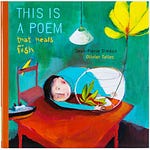As the years go by, my encounter with people who don't read keeps climbing.
No. This isn't an arbitrary attribution I am pulling out of thin air.
As an English teacher, I get to meet people from all walks of life, and inevitably, these encounters lead to a conversation about books, and eventually, it veers in the direction of how much or how little one is reading. At the end of these conversations, what I find is always an excuse for not reading or reading sporadically. If it's a child, the parents always say, "She is more interested in the phone than a book." If it's an adult, the adult will say, "I can't find the time to do it after a hectic day."
Reading is one of the bedrocks to good living. If you are not reading, then you aren't going to have an easy road ahead. If you think about it for a moment, you'll understand why. Reading brings focus into your life; it narrows the focus down, zones everything else out and relaxes you while you are at it. It enables you to look at something closely for as long as you chose to read it. You begin to build your little fortress of knowledge, and if you keep at it, then what you know will always be significantly larger than what a less-read person will know.
Here’s an anecdote. When I was younger, by that I mean, when I was a wee child, I was surrounded by people who always read. They were informed, and articulate people and their conversations were often punctuated with beautiful quotes, and their ideas were expressed in the most exquisite of ways. They did it so well that I wanted to become like the adults who surrounded me. Little did I know then that reading and modelling good reading had entered my life in a way for which I'd be thankful for the rest of my life.
My father gave me Leo Tolstoy's War and Peace when I was twelve. Reading it then meant acknowledging my father's desire to share his love for reading. How could I possibly let him down? I tried very hard to understand the book. I attempted to get past the first few pages, but in the end, gave up since thematically it was beyond my understanding. The book sat on the shelf. Thick, voluminous and distinct, it seemed to challenge me with every passing year. In its own way, the book was mocking me for believing I wasn't yet ready to deal with the weight of it.

Just by the simple fact that it sat on a bookshelf at an accessible height, one summer, when I was all of seventeen, I picked up the mammoth and read it. Bolkonsky and Natasha altered me in a way I cannot explain. I reread the book years later after my son was born, and the book managed to alter my perspectives yet again. With utmost certainty, I will tell you that when I reread it in my 50th year, it will alter my life in some unimaginable way, again. War and Peace continues to taunt me as it sits on my bookshelf.
Reading as a skill has dropped. Several people 'read' because they want to keep up with their peers. The most interesting conversation I had recently was with a CXO of a fairly large multinational company.
As a writing coach, one of the questions I ask my clients is simply this: "What have you read in the last two months?"
Most senior managers will rattle off their reading list. Most, if not all, are pretty impressive. The next question is, "Can you summarise them for me?"
Here is where I find, even the most accomplished senior executive often falters.
One doesn't need to be a senior executive to be good at summarising, but you will notice that summarisation is an art and a science. If you understand how to summarise, then you can take that skill into any aspect of your life.
Summarisation is somewhat of a final step, but what about the first step--comprehension?
If you think back on your competitive exams (think GRE, GMAT, CAT), you'll remember how important it was to score well on that section called reading comprehension. It isn't without reason that that component figures on advanced placement tests.
Not many people do well on that test. At least not without repetitive help or drills.
Now, going back to the anecdote on the senior executive: the said person was not able to summarise a single book on that list. There were books where the person was not able to recall the author's name even. I think that is somewhat problematic. Don't you?
Successful people (you can define success the way you want to) leaders or not, read extensively. Steve Jobs said, "Creativity is just connecting things. When you ask creative people how they did something, they feel a little guilty because they didn't really do it, they just saw something. It seemed obvious to them after a while."
Essentially, to be creative and innovative, you need to have diverse "dots" of knowledge. These diverse dots of knowledge do not appear via divine intervention. One needs to go after it, and most often than not, it happens when you read. Innovation is about connecting these dots in a way that hasn't been done before.
Reading gives people the knowledge or the dots that they need to come up with new ideas and approaches. It tells you when to be at War and when to be at Peace.
If you liked reading what I had to share, and would like to receive them in the future, do subscribe.
If you are looking for something to read, here's the latest Financial Times list:
https://businessbook.live.ft.com/page/1582794/longlist-us?saveConsentPreferences=success









Share this post